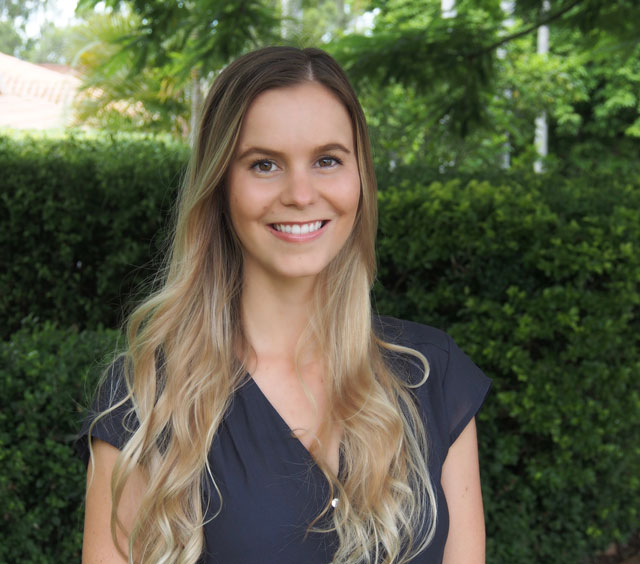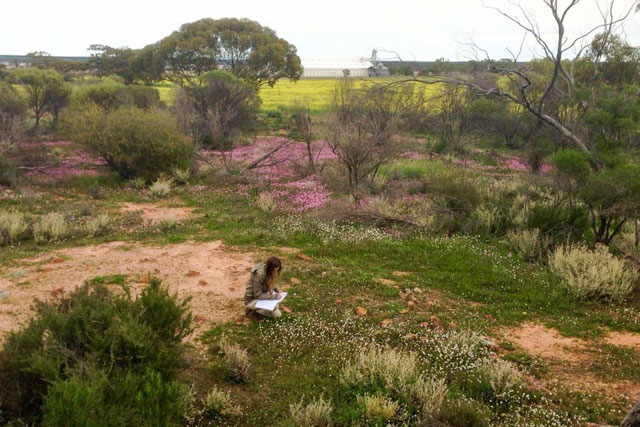

Insect pollination researcher, Birkdale resident and University of Queensland postgraduate student Victoria (Tori) Reynolds has won a 2017 postgraduate Fulbright Scholarship.
Ms Reynolds, a PhD student in UQ’s School of Biological Sciences and CSIRO Land and Water, will study in the Environmental Science Department of Emory University in Atlanta, Georgia.
“The scholarship will enable me to use the latest sophisticated genetic and technological methods to increase our understanding of plant and pollinator interactions,” she said.
“I’m excited by the opportunity to work in this emerging field of study, helping to develop this technology and shaping its use by pollination ecologists worldwide.”
Ms Reynolds said the scholarship would enable her to work alongside scientists at the forefront of this research.
“I will have access to world-class colleagues and facilities, while working towards achieving a protocol that will be of use to scientists not only in Australia and America, but worldwide,” she said.
“The project will be very important for agriculture and biodiversity conservation and help decipher how pollinators are foraging in agro-ecosystems around the world.
“This is a key area of research for the future of agricultural production and biodiversity conservation.”
Ms Reynolds will also spend her time in the US developing a research network of American and Australian scientists at the forefront of insect pollination research, through collaborative research and academic enquiry.
She completed her Bachelor of Science in 2013, dual-majoring in Zoology and Ecology before undertaking Honours in Ecology (also at UQ) where she was awarded First Class Honours.
Ms Reynolds started her PhD in April 2015 and hopes to finish by the end of 2018. Her primary supervisor is the Director of the UQ Ecology Centre, Associate Professor Margie Mayfield.
Her PhD research is looking at the role of pollinators in native plant communities in highly fragmented agricultural landscapes.
She is conducting fieldwork in south-west Western Australia, a major diversity hotspot in Australia which was once covered by diverse native woodlands including those that Tori’s research focuses on.
“Many of the canola fields in SW Western Australia are grown in areas with nearby remnant York Gum vegetation,” she said.
“Therefore, adjacent canola fields may increase the competition for pollinators for native annual wildflower communities, particularly as canola blooms concurrently with the majority of annual wildflowers.
“Throughout this research, I've spent many hours painstakingly counting pollen collected from my study insects.
“This led me to question the limitations with this current method, and had me exploring new alternatives to pollen counting and identification.”
Ms Reynolds said pollination ecologists were highly commended by their peers for displaying what seem almost insane feats of patience.
“I for one have learned the value of this. Be it hand pollinating wildflowers with paintbrushes, waiting for the perfect conditions to capture insects, counting the thousands of seeds produced by study plants, identifying and pinning insects, and perhaps the most trying task of all, counting pollen.
“Spending days preparing pollen microscope slides, weeks digitally imaging these slides, months counting and identifying pollen, I now feel I can take my place among the ranks of my patient pollination peers!
“Recent technological and genetic advances may, however, offer an opportunity to create a faster, more accurate and cheaper alternative to tedious manual pollen identifying and counting.
“DNA meta-barcoding appears to be the solution that we’ve been looking for.”
Tori is one of 48 awardees (31 Australian, 17 American) who will be awarded Fulbright scholarships at the 2017 Fulbright Presentation Gala Dinner, on March 8 at Parliament House, Canberra.



